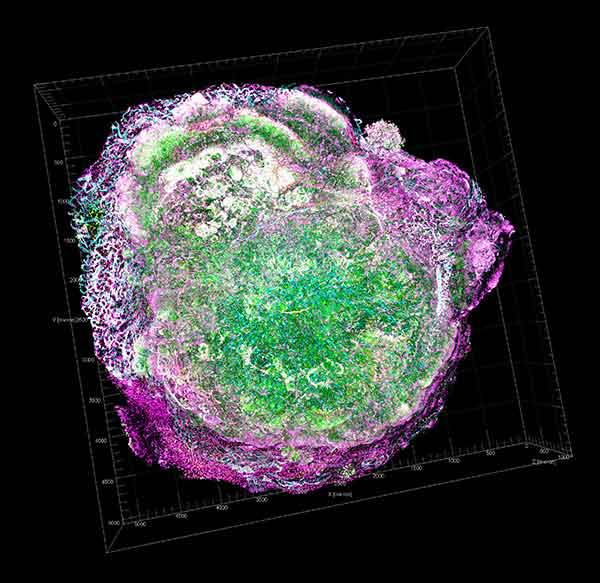| Cancer Information Highlights |
| From the National Cancer Institute |
| Updating you about cancer causes, prevention, screening, treatment, coping, and more |
| |
| New from NCI |
| HER2’s Genetic Link to Breast Cancer Spurs Development of New Treatments |
 |
|
The discovery of the HER2 gene and its role in breast cancer was a turning point in the treatment of the disease. Read how this NCI-supported discovery led to the development of targeted treatments that have helped women with HER2-positive breast cancer live longer. |
| Take with Food: Study Tests Lowering Dose of Prostate Cancer Drug |
 |
|
Can taking a cancer drug with eating breakfast help lower the dose that patients need to take? Read about a study in which researchers tackled this question. |
Video—Rectal Cancer: Treatment, Research, and Quality of Life
If you missed the live broadcast, you can now watch the recording of our Facebook Live event. Listen to Dr. Carmen Allegra, of NCI and the University of Florida, and Dr. Debra Schrag, of Harvard University, discuss rectal cancer treatment, research, and quality of life issues. |
| Video—Paying for Clinical Trials |
 |
|
The latest in our series of videos about clinical trials, this video explains the different types of costs related to taking part in a clinical trial and who is expected to pay for which costs. |
Access to Experimental Cancer Drugs
An experimental drug is one that has been tested in the lab and with animals. These drugs are approved for testing in people by the U.S. Food and Drug Administration (FDA) but can’t be advertised, sold, or prescribed yet. Learn about the ways that people with cancer can access experimental drugs. |
Infographic—Investments in Basic Research for Pediatric Cancers
Learn how investments in basic research can lead to new approaches for cancer prevention, screening, and new treatments, such as dinutuximab (Unituxin) to treat neuroblastoma. |
| PDQ Summary Updates |
Breast Cancer Treatment during Pregnancy
We’ve updated our PDQ summary about the treatment of breast cancer during pregnancy, including revisions to the tests used to diagnose and stage the disease. |
Oral Cavity, Pharyngeal, and Laryngeal Cancer Screening
Our PDQ summary on screening for oral cavity and oropharyngeal cancer now includes information on laryngeal and pharyngeal cancer, and the title was changed to reflect the update. |
| Drug Information Updates |
Blinatumomab Use in Leukemia
We’ve updated our drug information summary to include FDA’s expanded approval for blinatumomab (Blincyto) to treat patients with acute lymphoblastic leukemia whose disease is in complete remission but who are at high risk of their cancer recurring. |
Rucaparib for Ovarian Cancer
We’ve updated our drug information summary on rucaparib (Rubraca) to include a recent approval by FDA. The drug is now approved to be used as maintenance therapy in patients with ovarian, fallopian tube, or primary peritoneal cancer that is in remission. |
|
| |
| Also of Interest |
Cancer Screening
Cancer screening is checking for cancer in people who don't have symptoms. Screening tests can help doctors find and treat several types of cancer early, but they do have some drawbacks. Learn about the potential harms as well as benefits of cancer screening. |
Ovarian Cancer
Ovarian cancer is often diagnosed in later stages. Learn about ovarian cancer treatment, statistics, and recent research findings. |
Organizations that Offer Support Services
Looking for organizations that provide emotional, practical, and financial support services to cancer patients and their caregivers? Our database lists many national programs and allows you to search by type of assistance, cancer type, and keyword. |
|
|
|
|
|